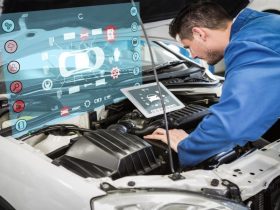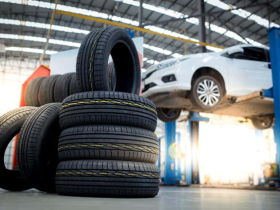Your car is more than just a mode of transportation; it’s an extension of your freedom and a key component of your daily life. Whether commuting to work, embarking on road trips, or running errands, a reliable car is essential. However, ensuring peak performance and safety requires more than just filling the gas tank.
Let’s get started!
Essential Car Care Tips for Every Driver
This guide explores essential car care tips for every driver, focusing on crucial aspects like tires and automotive repair. By understanding your car’s needs and implementing these tips, you can navigate the road with confidence and peace of mind.
1. The Importance of Proper Tire Care:
Tires are the only point of contact between your car and the road, playing a vital role in safety, handling, and performance. Regular tire maintenance is essential for maximizing their lifespan and ensuring safe driving.
The first step involves understanding your tire size and pressure specifications, found in your car’s owner’s manual or on a sticker located inside the driver’s door jamb. Maintaining proper tire pressure optimizes fuel efficiency, handling, and tread wear. Car tire sales stores typically offer complimentary air pressure checks, making it a quick and convenient way to ensure your tires are properly inflated.
2. Understanding Tire Tread Depth:
Tread depth is a crucial indicator of tire wear and safety. Worn-out tires with insufficient tread depth compromise your car’s ability to grip the road, especially in wet or snowy conditions. Most tires have built-in tread wear indicators, small raised bars that become visible when the tread depth reaches the replacement threshold.
You can also perform a simple penny test: insert a penny head-first into the tread grooves. If Lincoln’s entire head is visible, it’s time for new tires. Consulting a car tire sales professional can help you select the right tires for your car and driving needs.
3. The Value of Regular Oil Changes and Fluid Checks:
Oil is the lifeblood of your car’s engine, reducing friction and wear between moving parts. Regular oil changes, following the manufacturer’s recommended schedule, ensure clean oil lubricates your engine efficiently.
Neglecting oil changes can lead to sludge buildup, increased engine wear, and eventually, costly repairs. While changing your oil yourself is possible, many drivers prefer the convenience and expertise offered by qualified technicians at an automotive repair shop. These professionals can also check and top off other vital fluids like coolant, brake fluid, and windshield washer fluid, ensuring your car operates at peak performance.
4. Prioritizing Preventative Maintenance:
The key to avoiding major car problems lies in preventative maintenance. Following the manufacturer’s recommended service schedule, which typically includes oil changes, filter replacements, and various inspections, is crucial.
Think of it as preventative healthcare for your car – addressing small issues early on saves you money and ensures your car remains reliable. Many automotive repair shops offer routine maintenance packages, making it easier to stay on top of your car’s needs. These services often identify potential problems before they escalate, preventing costly breakdowns and ensuring your safety on the road.












